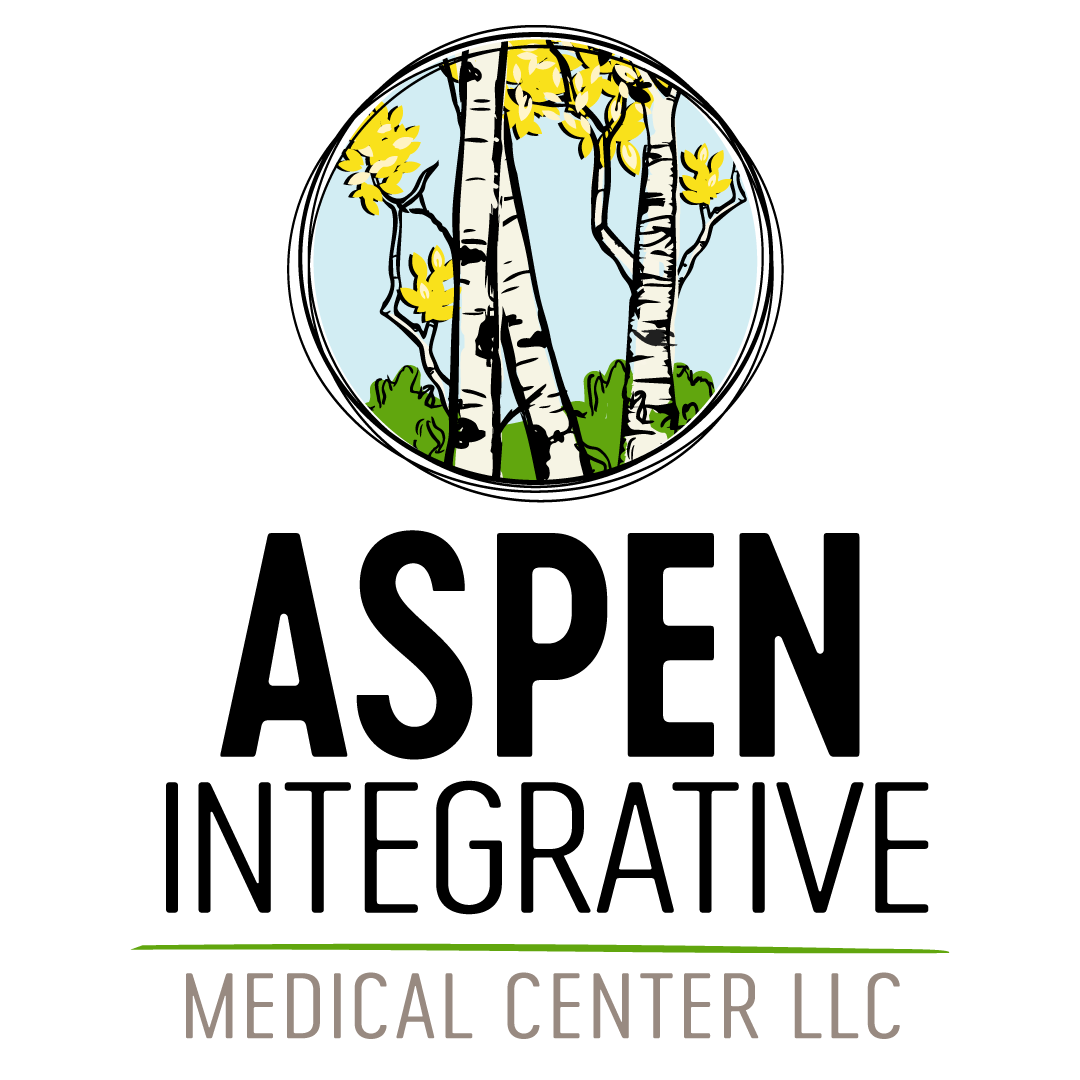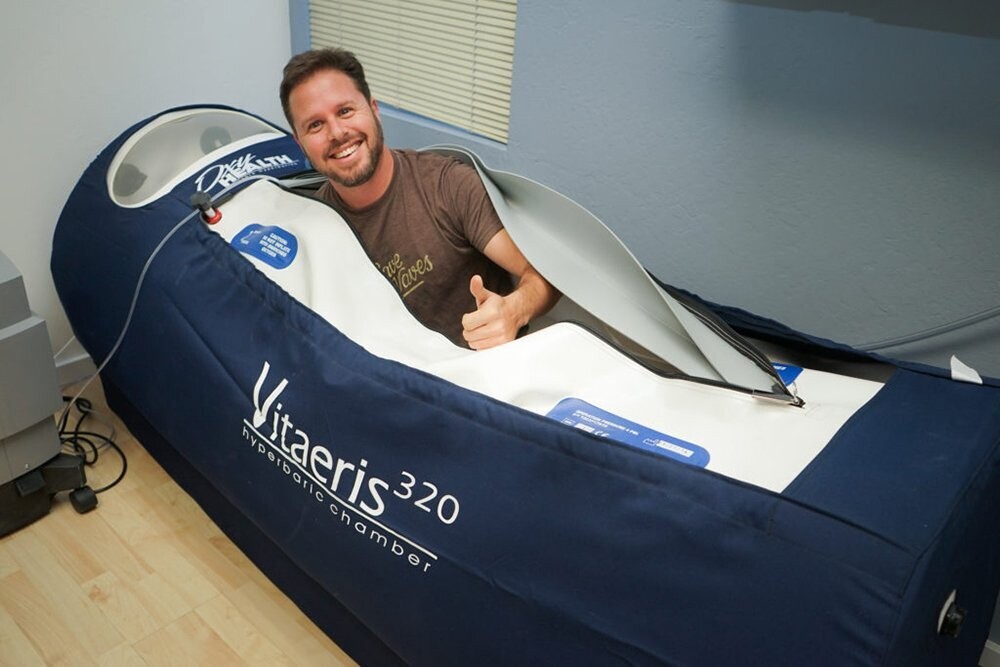Cutting-edge, integrative therapies you need right after injury.
Healing Traumatic Brain Injuries
Traumatic brain injuries (TBIs) are a type of injury that occurs when an external force causes damage to the brain. They can range from mild to severe and can have a wide variety of physical, cognitive, and emotional effects. Our physicians here at Aspen Integrative Medical Center are leading the way with integrative therapies and brain healing protocols to help you get back on your feet faster. From hyperbaric oxygen therapy, low level laser therapy, and oral peptides, we believe no one should have lasting complications from a traumatic brain injury.
Why is immediate treatment of a traumatic brain injury so important?
If not managed and treated appropriately AND quickly, traumatic brain injuries can have serious consequences and potentially lead to long-term complications. Here are some possible consequences of not seeking appropriate treatment for a TBI:
-
- Increased Risk of Secondary Injury: Without proper medical intervention, the initial damage caused by the TBI can worsen over time. This can result in increased brain swelling, bleeding, or inflammation, leading to further injury and potentially more severe consequences.
- Neurological Deficits: TBIs can disrupt various brain functions, leading to cognitive, physical, and sensory deficits. Without treatment, these deficits may persist or worsen, affecting the individual’s ability to think, reason, concentrate, move, or perceive the environment.
- Cognitive Impairments: TBIs can cause difficulties with memory, attention, concentration, and executive functions (such as planning and problem-solving). Untreated TBIs may result in persistent cognitive impairments that can affect academic or work performance, daily functioning, and overall quality of life.
- Emotional and Behavioral Issues: Untreated TBIs can contribute to the development or exacerbation of emotional and behavioral problems. These may include mood swings, irritability, depression, anxiety, impulsivity, aggression, or social difficulties. Such changes can strain relationships, affect work or school performance, and decrease overall well-being.
- Increased Risk of Seizures: Some individuals who experience a TBI may develop epilepsy or a tendency to experience recurrent seizures. Without proper treatment, the risk of developing seizures may be higher.
- Post-Traumatic Headache: Many people experience headaches following a TBI, and these can become chronic and more severe if left untreated. These headaches can significantly impact daily life and quality of life.
- Long-Term Disabilities: Severe TBIs, especially if left untreated, can result in long-term disabilities that may require ongoing medical care and assistance with daily activities. These disabilities can affect mobility, communication, self-care, and overall independence.
It is crucial to seek immediate medical attention if someone sustains a head injury to ensure proper diagnosis, treatment, and management. Early intervention and appropriate medical care can help minimize the potential long-term consequences of a TBI and improve the chances of recovery and rehabilitation.
What are the symptoms of traumatic brain injuries?
The effects of traumatic brain injuries can vary widely depending on factors such as the severity of the injury, the area of the brain affected, and the individual’s overall health. Some common effects of TBIs can include:
-
- Cognitive impairments (such as memory problems and difficulty concentrating)
- Physical impairments (such as headaches, dizziness, and motor coordination issues)
- Sensory impairments (such as vision or hearing problems)
- Emotional and behavioral changes (such as mood swings, depression, anxiety, and impulsivity).
How are traumatic brain injuries treated at Aspen?
The treatment of a traumatic brain injuries depends on the severity and specific characteristics of your injury. Our physicians may refer you to the Emergency Department and other specialists as needed for imaging (CT scan, MRI), neuropsychological assessment, rehabilitation therapy, and/or assistive devices.
At Aspen Integrative Medical Center, our naturopathic physicians use cutting-edge therapies with little to no side effects to reduce neuroinflammation, protect the blood brain barrier, stimulate nerve stem cells, prevent development of secondary complications, and get you back on your feet faster. An integrative treatment plans is individualized to each patient and may include:
-
- Hyperbaric oxygen therapy – increases oxygen perfusion in the body to repair damaged tissue and reduce inflammation
- Anti-inflammatory diet – food suggestions to reduce inflammation levels and prevent development of secondary gastrointestinal auto-immune diseases
- Lifestyle recommendations – recommendations about sleep, exercise, screen use, and when to return to work or school,
- Nutrient supplementation – anti-inflammatories and brain healing vitamins and nutrients like fish oil, resveratrol, CoQ10, etc.
- IV therapy – high doses of critical nutrients delivered directly in the blood and reach the brain faster to promote healing
- Neurofeedback – restores normal brain waves and functioning to improve mood, energy, and sleep
- Low level laser therapy – stimulates tissue repair on the cellular level and reduces neuroinflammation
- Herbal medicine – plants that increase circulation to the brain and formation of new neurons
- Peptide therapy – peptides like BPC-157, SS-31, cerebrolysin, etc. are signaling molecules to promote nerve and tissue repair.
- Craniosacral therapy – gentle manual therapy that releases cranial bone restrictions and calms down neuroinflammation
- Homeopathy
It is important to note that the treatment and management of TBIs should be guided by healthcare professionals experienced in neurotrauma care. Each case is unique, and the treatment plan should be tailored to the individual’s specific needs and circumstances.

Hyperbaric oxygen therapy, deep tissue laser therapy, and IV therapy is especially helpful to promote faster healing from a brain injury. Hyperbaric oxygen therapy has greater benefit if followed by a series of IVs that contain the nutrients vitamin C, taurine, carnitine, magnesium, b vitamins, potassium, calcium, glutathione, and molybdenum.





